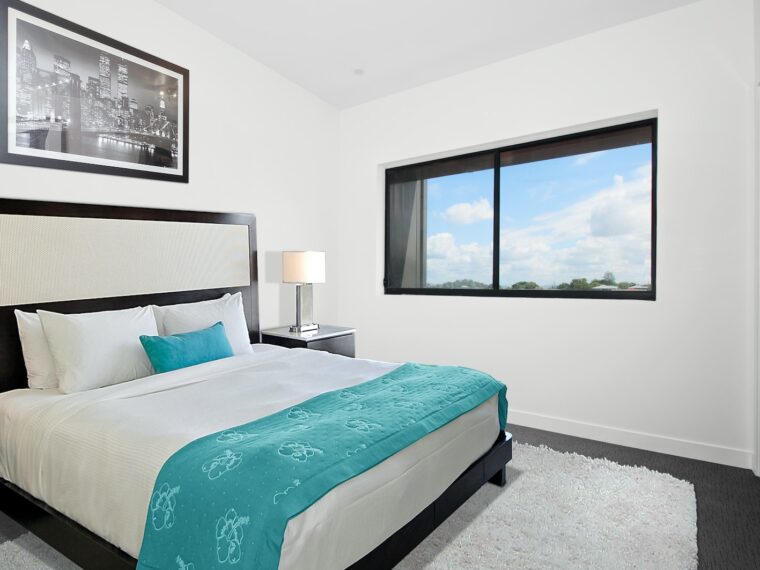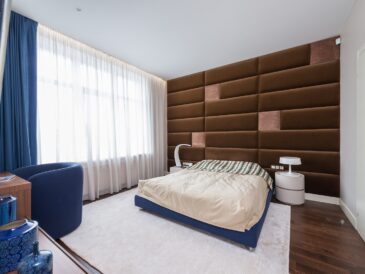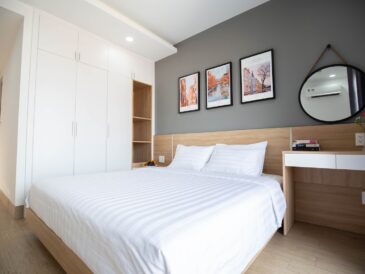Memory foam mattresses have long been touted for providing the ideal combination of comfort and support, especially when used in combination with a mattress topper. Unfortunately, however, some individuals have reported back pain from sleeping on memory foam.
To help you avoid this scenario, we’ve put together a guide that explains why some people experience back pain while using memory foam and how you can prevent it.
It’s not the mattress
Memory foam was initially developed as an aircraft seat material by NASA in the 1960s, and has become one of the primary benefits of modern mattresses since then. Memory foam’s soft polyurethane material responds to your body heat and pressure by molding to your unique shape; this process is known as contouring; one of its primary benefits includes relieving back pain by evenly dispersing weight across your sleep surface and eliminating pressure points around hips, shoulders, and back areas.
Memory foam mattresss don’t always respond as expected to poor sleeping posture, leading to uncomfortable roll-over or sleeping positions that put stress and strain on your back, which can result in stiffness or pain upon awakening. Therefore, it is crucial that you allow enough time for getting acquainted with your new mattress in order to avoid future back discomfort.
Depending on the circumstances of your mattress topper and back pain, there may be multiple potential reasons. Most likely it’s because the topper doesn’t provide sufficient support to your spine or it might push out of alignment and pushes against your spine’s alignment.
Memory foam toppers can offer instantaneous relief from back discomfort, but they may not be right for everyone. If you suffer from chronic back issues, it is advisable to consult with a physician or physical therapist first when considering any mattress purchase; depending on their diagnosis, they may suggest different mattresses which will better align your spine and alleviate or eliminate pain altogether.
Not all memory foam mattresses are created equal; their density differs, which measures how quickly your weight compresses it. While medium density memory foam will generally provide adequate back support, it may still be beneficial to test out different mattresses to find one that’s the right one for you.
It’s the sleeping position
Symptoms of morning backache could include poor posture, sciatica, prolapsed disc or other medical conditions. Finding a mattress which supports your spine’s natural curve while at the same time cushioning pressure points is key in relieving this discomfort.
Mattresses can help ease pain and protect against further injury; however, no single mattress fits all bodies perfectly – it’s best to experiment with different firmness levels and sizes before finding one that’s tailored specifically to you and your body’s needs.
As well as paying attention to your mattress, it’s also important to pay close attention to the way you sleep. If your lower back or neck aches when you wake up, this could be caused by poor sleeping positions; your chiropractor can recommend optimal positions for relieving back pain; with just a few adjustments it can easily be corrected.
Consider which base will work best with your memory foam bed. Slatted bases don’t tend to do as well with memory foam mattresses due to the gaps between slats, which will eventually cause it to sag over time.
Finally, you should ensure your new memory foam mattress will be suitable with your existing frame and bed. A pillow top memory foam mattress may not work with an existing frame as its extra sinkage could result in too much extra sinkage; to overcome this issue it may be beneficial to add a memory foam topper to existing mattress.
Note that new memory foam mattresses require approximately 30 days for them to adapt to your body weight, shape and sleeping preferences; for this reason most sleep trials stipulate that no returns can be accepted until this period has lapsed.
Memory foam is an outstanding material for providing lumbar support, long used in spacecraft and aircraft seats due to its ability to absorb impact and ease joint stress. Now being used to alleviate back pain and enhance sleep quality for many individuals; although finding the ideal mattress may be challenging, memory foam might just be what you need if waking up with backache is becoming an everyday reality.
It’s the weight
Memory foam’s unique ability to mold to your body’s contours provides relief in areas that commonly cause pain and discomfort such as the hips, shoulders and neck. Your own body heat warms the memory foam before it conforms to fit the contours of your body shape – eliminating painful pressure points along the way.
Memory foam’s ability to wick away moisture is another key benefit, aiding you to remain cool during the night and helping those struggling with back pain or other health conditions to sleep more soundly and more quickly. This feature can make getting and remaining asleep more accessible than ever!
If you’re searching for a memory foam mattress to ease back pain, it’s crucial to select one with an ideal firmness level. Most health experts suggest medium-firm memory foam mattresses as providing optimal levels of both comfort and support; however, keep in mind that firmness levels vary widely among individuals; what might feel right to one person could be too soft or hard for another.
If your memory foam mattress doesn’t provide enough firmness, consider investing in a mattress topper as an inexpensive and quick way to increase firmness in bed and potentially ease back pain. They offer instantaneous results!
Alternately, there are mattresses specifically tailored to alleviate back pain. Zero-gravity beds will put your spine into an ideal neutral position while you sleep and help alleviate stress on your back.
Notably, some memory foam mattresses will come with warranties, providing an indicator of the product quality. A warranty typically indicates a higher level of craftsmanship and can provide greater protection from wear-and-tear. A mattress without such protection may last less long or fail to provide equal comfort or support levels.
It’s the time
Memory Foam was initially developed in the 1960s for NASA airplane seats and is soft and flexible. It contours to your body, relieving pressure points while supporting your spine’s natural curve – helping promote neutral spinal alignment and ease back pain. Plus, memory foam acts as an insulating blanket to keep you warm at night as well as reduce any motion transfer from sleeping partners who toss and turn.
However, some types of memory foam mattresses are softer than others and choosing a mattress with too much sinkage can cause your back to sink in an unhealthy way. Too much sinkage disrupts natural alignment of spine and may lead to back pain; to avoid this scenario choose medium-firm memory foam mattress or use bed frame with fitted plywood underneath so as to make mattress firmer.
Memory foam toppers may lose their firmness over time and force you into an uncomfortable sleeping position, necessitating replacement. If this occurs with your topper, it may be time for an upgrade.
When purchasing a memory foam mattress, make sure it boasts an IFD rating above 60. IFD measures indentation force deflection which gives an indication of firmness; higher IFD numbers signify denser, more resilient foam.
An IFD rating above 85 will also indicate that your mattress is resistant to dust mites, which can contribute to back issues. Also look for memory foams made with cooling additives like copper or graphite – these will keep your cool during the night and prevent your back from becoming irritated.
If your memory foam mattress is no longer providing relief from back pain, it may be time for an upgrade. An old and worn-out mattress may no longer provide adequate support and could even displace spinal alignment causing further discomfort in your spine, leading to chronic backache. Furthermore, older mattresses can make sleeping difficult causing quality of restful night’s rest to suffer significantly compared to a brand new mattress which will provide your back with all of its necessary support while giving you restful nights’ rest – so take action today and say goodbye to back pain forever!




